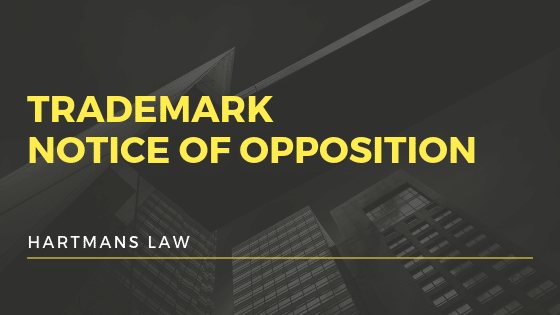
What is a Notice of Opposition and What Does it Mean for a Trademark Application?
A Notice of Opposition is an objection to the registration of a trademark. If the Opposition is sustained or if the applicant does not file a timely response, the trademark will not be registered.
Who Can File a Trademark Opposition?
A Trademark Notice of Opposition can only be filed by a person, “who believes that he or she would be damaged by the registration of a mark”. 15 U.S.C. §1063(a); 37 C.F.R. §2.101(c); TMEP §1503.03.
Typically, Trademark Oppositions are filed by other trademark owners who do not want the applied-for trademark registered. Trademark Oppositions are sometimes filed for a strategic purpose beyond preventing trademark registration.
Why is a Trademark Opposition filed?
There are certain grounds for filing a Trademark Notice of Opposition. Some of the common grounds are 1) likelihood of confusion with a prior trademark registration, 2) the applied-for mark is descriptive of the goods and/or services, and/or 3) the mark was not in use when the application was filed.
One strategic purpose for filing a Notice of Opposition is that the opposer wants the applicant to acknowledge, in a written agreement, that the applicant will not use the mark for goods other than what is in the application. For example, A famous shoe company may oppose an application to register a mark similar to its house brand, but used for cosmetics. If the applicant is a startup without the cash to pay the legal fees to defend itself, the applicant might agree never to use the brand for shoes or apparel in exchange for the shoe company withdrawing the Notice of Opposition.
It is common for owners of famous brands to aggressively oppose applications for the same or similar marks for the same goods and/or services. In some cases, owners of famous brands oppose the registration of quite dissimilar marks for wholly unrelated goods and/or services. This aggressive approach highlights the value of owning a trademark registration. Read about why famous brands aggressively oppose trademark applications, and the benefits of trademark enforcement, in our article on Trademark Strength.
Who Decides if an Opposition is Sustained?
The Trademark Trial and Appeals Board, commonly referred to as the TTAB or the Board, decides, after a trial, whether to sustain Trademark Oppositions.
What to Do When You Receive Notice of Opposition
The strategy of defending against a Notice of Opposition depends on the facts of the case. Does the Notice of Opposition have merit? What is the Opposer’s history of filing Notices of Opposition (search for prior actions at the USPTO TTABVUE website)? The answers to these questions will inform the applicant on the range of possible outcomes. Will the Opposer back down if the Applicant files an Answer and initiates discovery? Will the Opposer allow the registration if the Applicant agrees to certain conditions?
The only sure thing is that if the Applicant does not file a Response to the Notice of Opposition before the deadline set by the Trademark Trial and Appeals Board, the Opposition will be sustained by default and the trademark will not be registered.
Do I Need to Hire an Attorney to Respond?

There are many benefits to attorney representation in a Trademark Opposition proceeding, including familiarity with the Federal Rules of Civil Procedure, which apply to such proceedings.
The most compelling reason to hire an attorney may be the message sent to the opposer – this is important and I am willing to defend myself. In the mind of the opposer, the chances of the opposition succeeding go down once the applicant hires counsel. That increased risk may be enough to convince the opposer to settle.
Is it time to call an attorney? It depends on how important the brand is to you.
